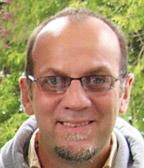Returning to the studio. The photograph that Ingrid Bétancourt refuses to look at was taken, she tells us, at the worst moment of her captivity. We, who are spectators at the tragedy, have long since lost our sensitivity to the power of an image. In this photograph, the jailor has almost attained his goal. Ingrid Bétancourt’s universe extends no more than two square metres, scarcely beyond the limits of her own body. The picture is one of total vulnerability, physical and psychological. In her book, The Body in Pain, Elaine Scarry calls the state that results from terror, violence, and isolation the “un-making of the world.” We might also call it “total dehumanization” or “destructuration of belonging schemes”.
On this web site, you will find a lovely metaphorical meditation on the Sea and Life. When life is attacked in a culture, an institution or, as here, in a single individual, life withdraws implacably from every place it would express itself—from relationships, institutions, houses, cities, works of art: nothing escapes this withdrawal. The restoration of life can only operate in the same way: life returns simultaneously in and to all its manifestations.
Is this the lesson of her six-year captivity? Has Ingrid Bétancourt acquired a wisdom that escapes us? An understanding that life can only be born from life? That life is indivisible, and that its strength resides precisely in the coherent unity that inspires what we do and even what we look at—and what we don't. Does its calm strength not resemble the tide that rises?
1. Scarry, Elaine. The Body in Pain: The Making and Unmaking of the World, (New York: Oxford University Press, 1985).


 Inspiring in her humanity. Ingrid Bétancourt. Not so much because of what she says but because of what she refuses to say. Notably, what she refuses to say about the inhumanity of her jailers—an inhumanity she does not deny but refuses to name. Why, even as we watch and are staggered by the humiliating images of her detention, does Ingrid Bétancourt avert her eyes, forbidding herself to look at them?
Inspiring in her humanity. Ingrid Bétancourt. Not so much because of what she says but because of what she refuses to say. Notably, what she refuses to say about the inhumanity of her jailers—an inhumanity she does not deny but refuses to name. Why, even as we watch and are staggered by the humiliating images of her detention, does Ingrid Bétancourt avert her eyes, forbidding herself to look at them? The editor of L'Encyclopédie de L'Agora and well known newspaper chronicler and philosopher, analyses actuality through the looking glass of Belonging.
The editor of L'Encyclopédie de L'Agora and well known newspaper chronicler and philosopher, analyses actuality through the looking glass of Belonging.